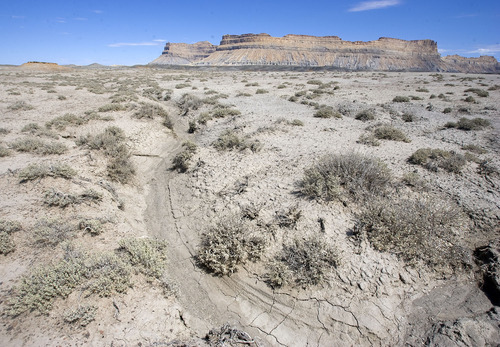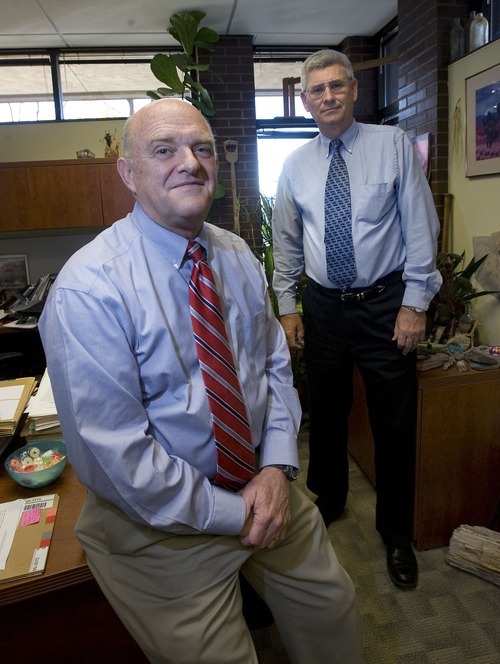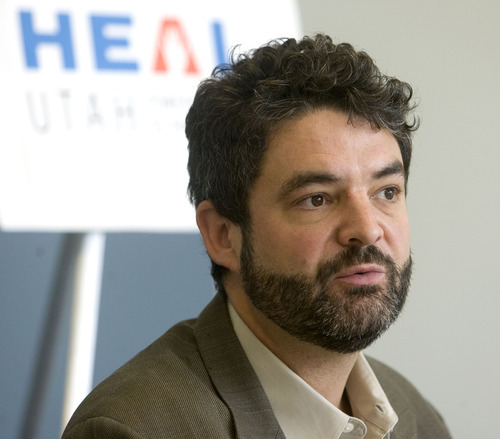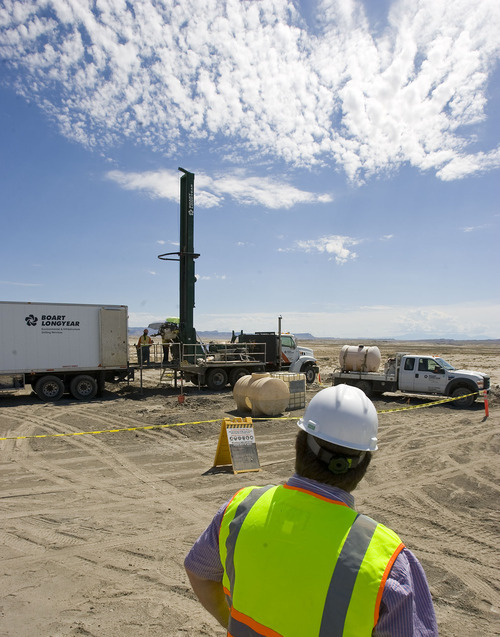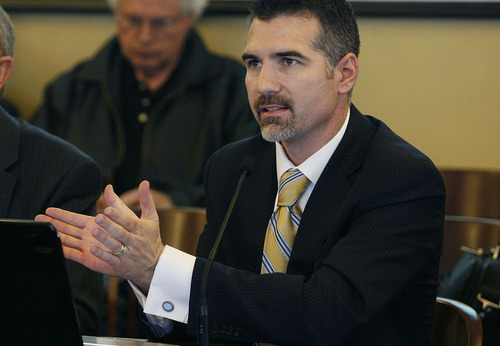This is an archived article that was published on sltrib.com in 2012, and information in the article may be outdated. It is provided only for personal research purposes and may not be reprinted.
Critics of the state's decision to approve water rights for the state's first nuclear power plant took their case to court Tuesday.
Led by environmental groups, the two separate but nearly identical lawsuits say State Engineer Kent Jones failed to ensure that the proposed water use is not speculative and that it won't harm those who already rely on the water.
"Governor Herbert pretends to call for a debate on nuclear power, but meanwhile his administration approves water for the Green River nukes with only a cursory review," said Matt Pacenza, of the Healthy Environment Alliance of Utah. "We felt we had no choice but to go to court so that someone could actually take a close look at this project."
His group, HEAL, joined Uranium Watch, Living Rivers and the Utah Rivers Council and others in bringing the complaints.
On Jan. 20, Jones approved requests by the water conservancy districts of Kane and San Juan counties to lease 53,600 acre-feet of their Colorado Basin water allotments to developers of the Blue Castle nuclear power project. In late February, Jones refused a request to reconsider his decision, so the next step is to appeal to court, where the evidence will be considered anew.
The proposed 3,000-megawatt plant would draw the water upstream of the two southern Utah counties, about six miles from Green River city near the intersection of Interstate 70 and U.S. Route 6, and it would consume all of the annual allocation for cooling.
Getting the engineer's nod to use the water was the first regulatory hurdle for the project — and the only one over which Utah officials have an official say. Neither the governor nor Legislature gets a vote.
Blue Castle is expected to apply for a site permit from the U.S. Nuclear Regulatory Commission in about a year. Aaron Tilton, a former state legislator who is president and CEO of the privately held company, said he was "not surprised" about the lawsuit, which he had not seen. He had no further comment Tuesday.
Norman Johnson, general manager of the San Juan County water district, which stands to receive hundreds of thousands of dollars each year from the lease once the project gets under way, called the suit "part of the process."
"I'm confident that the engineer studied it very thoroughly and issued an opinion he can defend," Johnson said.
Jones is prepared to defend his handling of the matter.
"We feel like we've looked at the applications carefully and reviewed the information carefully, and we are very comfortable with the decisions we've made," Jones said.
In contrast, Sarah Fields, director of Uranium Watch, said she looks forward to pressing the case in a neutral forum.
"I think we have a good chance of winning because the state engineer did not do his job," she said.
Indeed, the lawsuits, filed in 7th District Court in Emery County late Tuesday, go point-by-point over the state standards for granting water rights and challenge the depth of the state's due diligence.
The groups say Jones failed to demand sufficient proof that:
• There is enough water in the over-appropriated Colorado River Basin to protect those who already hold water rights;
• The project is feasible under current and foreseeable economic conditions;
• The proposal is not speculative;
• Use of the water won't harm recreation, public welfare and the natural stream environment, especially four species of endangered fish that rely on minimum stream flows;
• And the proponents have the financial means to complete the project.
On that last point, the critics ask the court to overturn the engineer's decisions because none of Blue Castle's funding plans presented to the state panned out and there is no evidence project backers have sufficient financing. Plaintiff's attorney Lara A. Swenson called it an "I'll take their word for it" approach by the engineer.
"Applicants," the suit says, "have not provided any substantiated source for their funding, either the $100 million needed for permitting or the billions needed for actual construction and completion of the nuclear plant."
Bob Quist, who is convinced his river-running business and the Green River community would be harmed by the nuclear plant, protested the water-rights change and is now part of the lawsuit.
"Our business depends on water," he said. "If [the nuclear plant] goes forward, it would remove enough water to impact our business."
Fields said those behind the lawsuit have purchased a full-page ad in the Moab Times-Independent to raise money from the community for the legal challenge.
fahys@sltrib.comTwitter: @judyfutah


